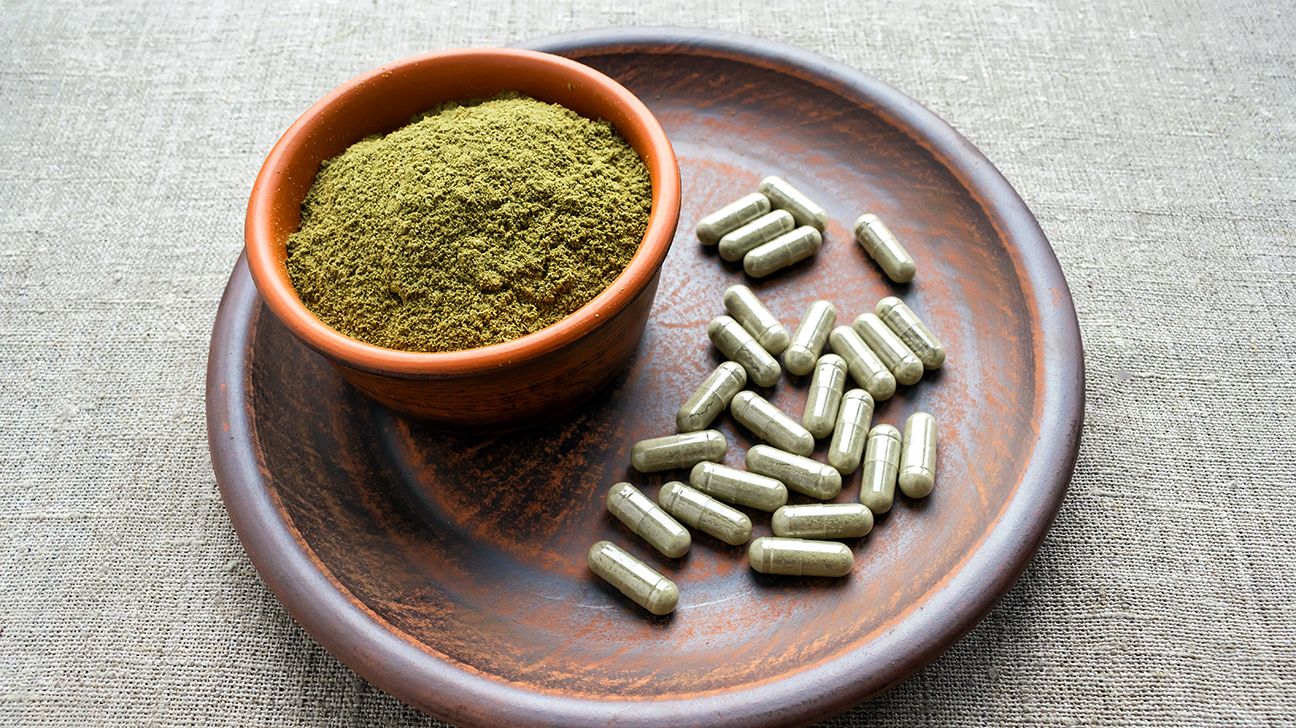The benefits of kratom have not been shown in research. And it carries risks, including dependence. It’s legal, but not regulated — the supplement you buy could contain other harmful substances.

Kratom is a tropical herb that comes from evergreen trees in South Asian countries, and extracts from its leaves create a stimulant effect similar to opioids.
It has been used as a stimulant and a sedative, has been reported to treat chronic pain and digestive ailments, and can help with withdrawal from opium or other types of drugs.
However, kratom hasn’t been cleared for medical use, and there are not enough clinical trials to understand the health effects of kratom.
In the United States, kratom is usually marketed as an alternative medicine, but it’s not approved for prescription or medicinal use by the Food and Drug Administration (FDA).
The
The main
Kratom is also available in paste, capsule, and tablet form. In the United States, kratom is mostly brewed as a tea for the self-management of pain and opioid withdrawal.
The FDA
Stimulant effects
According to the European Monitoring Centre for Drugs and Drug Addiction (EMCDDA), a small dose that produces stimulant effects is just a few grams. The effects usually happen within 10 minutes after ingesting it and can last up to 1.5 hours. These effects can include:
- alertness
- sociability
- giddiness
- reduced motor coordination
Sedative effects
A larger dose of 10 to 25 grams of dried leaves can have a sedative effect, causing feelings of calmness and euphoria that could last up to 6 hours.
Reported side effects of long-term use of kratom include:
- constipation
- lack or loss of appetite
- severe weight loss
- insomnia
- discoloration of the cheeks
- higher blood pressure and other cardiovascular effects
There are reports of the beneficial effects of using kratom, but there’s no clinical evidence to support it. Proper supporting research in the future could show kratom to have potential.
Without this research currently, there are a lot of things about this drug that remain unknown. This includes effective and safe dosage, possible interactions, and possible harmful effects. These are all things that you should weigh before taking any drug.
Always make sure to consult your healthcare team before trying kratom, or making changes to your life for health reasons.




